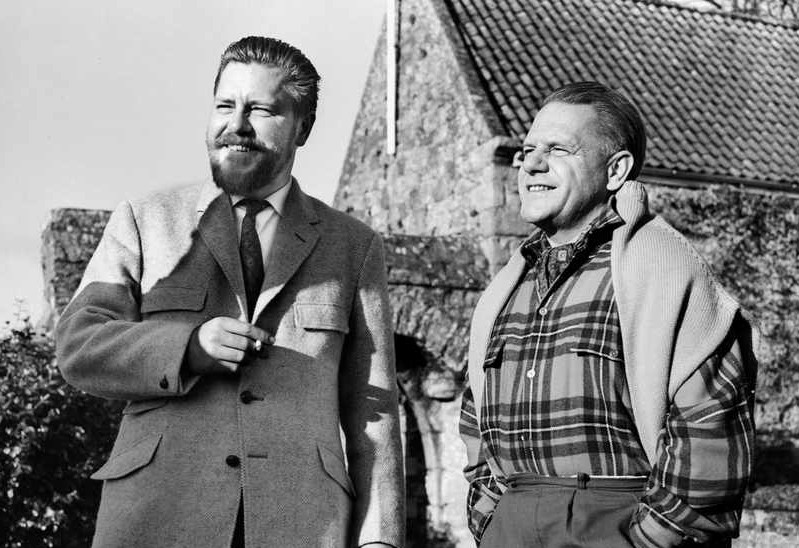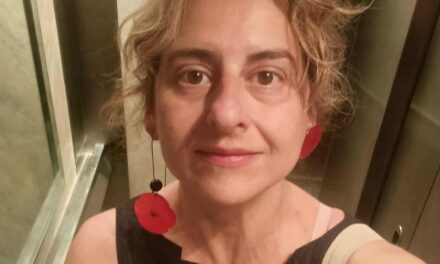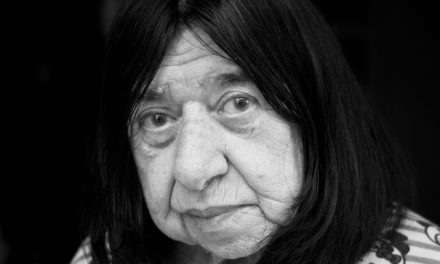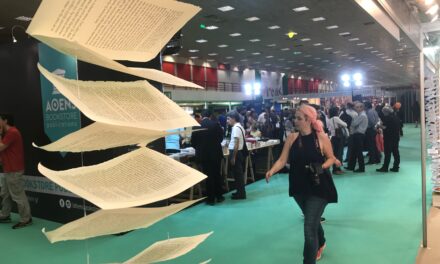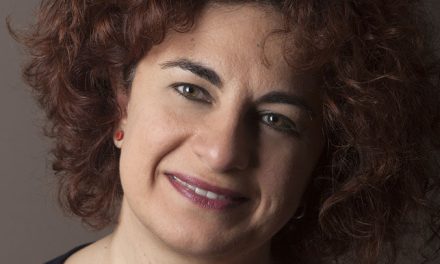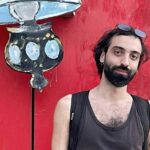The Durrell Library of Corfu will host the literary symposium “Islands of the Mind”, focusing on Island Studies, the lives and works of Lawrence Durrell, Gerald Durrell and Theodore Stephanides, as well as Corfiot writers Konstantin Theotokis and Spyros Plaskovitis. It will take place on 23-28 June 2019 at the Solomos Museum, in the old town of Corfu.
“Islands of the Mind” will examine aspects of Island Studies, specifically “islomania” -the “affliction of spirit” for those “who find islands irresistible”-, indigenous island writing compared to that of “visitors”, the study of islands as a microcosm of biodiversity, the “tourist gaze” and tourism as a dimension of island development. This will be the most significant gathering of experts in many years on the lives and works of Lawrence Durrell, Gerald Durrell, Theodore Stephanides and on the writers of Corfu.
A unique feature of the symposium will be the publication in a limited edition of Lawrence Durrell’s previously unpublished 1930s novella The Magnetic Island (set in the Ionian islands, with illustrations by Nancy Durrell and dedicated to Theodore Stephanides) with a specially commissioned translation into Greek by Vera Konidari.
On the occasion of the symposium, Reading Greece spoke* with Richard Pine, Director of the Durrell Library which he founded (initially as the “Durrell School”) in 2001-2. Born in London, and educated at Westminster School and Trinity College, Dublin, Pine worked as an administrator and editor for the Irish national broadcasting service RTE until his early retirement in 1999, in addition to pursuing his interests in music education, theatre history and media studies. He has presented and appeared in over 100 radio and television broadcasts for RTE and the BBC. He was for many years a trustee of the Royal Irish Academy of Music (of which he is an honorary Fellow).
His twelve books include The Diviner: the art of Brian Friel (1990, 2nd edition 1999), The Thief of Reason: Oscar Wilde and Modern Ireland (1995), The Disappointed Bridge: Ireland and the Post-Colonial World (2014) and Greece Through Irish Eyes (2015). He lives in Corfu and writes a regular column on Greek affairs for The Irish Times; he is a regular contributor for the newspaper Kathimerini.
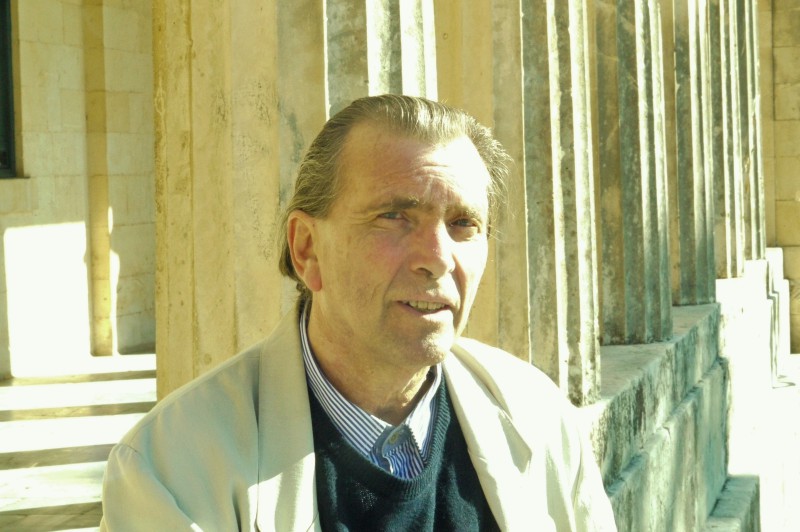 Richard Pine
Richard Pine
What led to the choice of this title for the symposium? Will it focus on islands as microcosms both in the biological as well as psychological sense?
The Durrell School/Library of Corfu has always chosen provocative themes. Because Corfu is already so well-known through books by visiting writers (such as the Durrell brothers, Deborah Lawrenson, Robert Dessaix, Emma Tennant) we wanted to expand the topic to include a discussion of the psychology of islands – both from the outsider’s point of view (the “tourist gaze”) and that of people who were born in an island and write about it “from the inside”. And we added to this the issue of Bio-diversity because the study of islands is central to understanding ecology and the issues that arise from development, from which Corfu is suffering. That’s why it’s important to have speakers like Lee Durrell (widow of Gerald Durrell) to speak about the continuing Durrell biodiversity projects on islands like Mauritius (which Gerald set up) and Godfrey Baldacchino, from Malta, who is one of the world’s experts on the entire subject of the status of small islands.
I should also mention that we are delighted to include Spyros Orfanos. He is a native of Ereikousa, one of the three tiny “diapontic” islands on the north coast of Corfu. He is now professor of psychology at New York University, so his personal background of a small Greek island and his professional expertise as a psychologist uniquely equip him for our discussions. And his current work, with migrants and human rights makes his experience especially relevant in the light of the refugee crisis on the Greek islands.
So “ISLANDS” is an “umbrella” term covering tourism, development, psychology and philosophy, history, migration, and science. We are very confident that all of these can be addressed during our symposium, by a wide range of speakers. Everyone attending is expected to take part – and we have people coming from Australia, India, Egypt, USA and Canada, the UK, Ireland, Finland, Poland and Romania – and from all walks of life: psychiatrists, psychologists, poets, ecologists, philosophers, journalists, novelists, translators, historians, architects, musicians, and academics.
One of the symposium’s main themes is the “affliction of spirit” Lawrence Durrell defined as “islomania” – you have in fact recently written about it in a newspaper piece; in it, you juxtapose the outsiders’ longing for the islands with the insiders’ experience. Would you say that, to outsiders, an island can be an elusive Shangri-La while, to a local, an island is a state of mind?
Yes, the attraction of an island is immense and psychologically very interesting. Some times we travel to an island in search of an asylum, a place where we can clarify our thoughts and the issues that confront us. Other times we escape to an island from something unpleasant or threatening. Sometimes it is mere curiosity: an island acts as a microcosm, representing a sense of community, from which we might learn about human society. We are delighted to welcome the very distinguished Irish writer Éilís Ní Dhuibhne, who will speak about the outsider/insider issue in relation to Irish island writing. What does the outsider understand about an island and its ethos and how does he/she describe it, compared with the way an island-born writer will express that ethos? Her participation is made possible by Irish government funding through Culture Ireland, as is Ciaran Benson, a psychologist with a particular expertise in the role of place in establishing identity.
Did the Durrells ever actually cross this barrier separating the two mindsets?
I don’t think Lawrence ever really settled in any one place, because his career was very uprooted and when he did settle in the south of France he was never really at ease. But his “foreign residence” writing, as he called it, gave us the enchanting poetic Prospero’s Cell (about Corfu), Reflections on a Marine Venus (Rhodes) and the tragic Bitter Lemons about his mixed feelings on Cyprus. His aim, as far as he could, as a philhellene, was to discover the essential nature of the islands and the islanders, and to see how far it reflected his own knowledge of himself.
Gerald’s Corfu Trilogy, including the world-famous My Family and Other Animals, is of course much better known than his brother’s book about Corfu (it has sold over 5 million copies worldwide!), and had already provided the material for two films before the recent four-year series of The Durrells which is now coming to an end. We are thrilled that Simon Nye, scriptwriter of The Durrells, will be with us for a Q&A session at The White House, Kalami (where Lawrence and Nancy Durrell lived 1935-39, and where we will also hear Joanna Hodgkin, Nancy’s daughter, talking about her mother’s time here with Lawrence). Gerald went on to establish his own zoo and breeding centre in the island of Jersey, so he lived most of his life on islands – including Madagascar and Mauritius where some of his most important work was done – and is still being done. So ISLANDS were central to their entire lives, and both brothers did understand in a very profound way the phenomenon of “islands”.
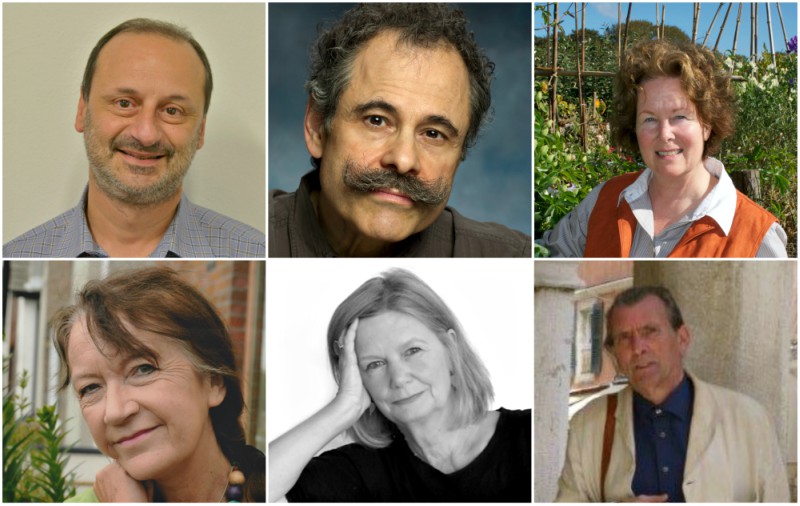 Clockwise from top left: Godfrey Baldacchino, Spyros Orfanos, Lee Durrell, Richard Pine, Joanna Hodgkin, Éilís Ní Dhuibhne
Clockwise from top left: Godfrey Baldacchino, Spyros Orfanos, Lee Durrell, Richard Pine, Joanna Hodgkin, Éilís Ní Dhuibhne
You yourself have lived in Corfu for a long time. What is your personal experience? At what point -if ever- does one stop feeling like they’re on the outside looking in?
I think you can walk down the street in Corfu Town and be recognised as a “fixture” but nevertheless remain an outsider. I come from Ireland, where it is said even after 600 years you are not truly accepted! But in Ireland I first encountered the feeling that an island, with its indigenous cultures, its particular ways of seeing and thinking, can be different from the mainland where people’s lives are so much more orchestrated and centralised.
I lived in Corfu Town for eleven years, and learned to appreciate what made Corfu “different” – due partly to its 400-year Venetian heritage which set it apart from most of what is now the Greek state. Maybe its cosmopolitan history made me feel “at home”. The layers of history and culture, from classical Greece (the famous “Medusa”) through to the Venetians, the French and the British, before enosis in 1864. I also learned that one can walk down the street and be greeted by people you know – a quality of life that has been lost in big cities.
When I moved into a village house eleven years ago I think I was regarded as a holiday-maker, but when my neighbours realised that I was a year-round resident, they came to accept me, but I am always the “xenos”. In fact I write a monthly column “The Eye of the Xenos” for the English-language edition of Kathimerini. Maybe it’s easier to be an outsider: it not only gives you the right to comment objectively, but no-one can accuse you of trying to “go native”.
Do the five writers discussed at the symposium have something else in common apart from the presence of Corfu in their lives and writings?
Most definitely: they were all concerned with honesty and transparency in their work, anxious to reflect the issues facing mankind and (with the exception of Theotokis who died in 1923) in the post-second-world-war, post-Holocaust era, to put literature at the service of truth, to tell stories that were true to nature and the society they saw around them, but were also fictions with all the veracity of fiction.
This is the case despite the fact that they were mostly coming from different backgrounds and went on to write in different genres. Lawrence Durrell was principally a “poet-who-stumbled-into-prose” (to use his own expression), exploring Buddhism and relativity in his novels. Gerald wrote to finance his expeditions to rescue endangered species; critics often regard him as a second-rate author but his books sold in their millions precisely because he was a page-turner – spinning a fantastic yarn with a deadly-serious message at its core: if we don’t save these species, we are in danger of destroying ourselves and the planet.
Spyros Plaskovitis’s Facade Lady of Corfu is the only one of his novels available in English, but it’s part of an allegorical trilogy; the Facade Lady deals with a topical issue: the selling off of the national heritage, but its wider implications, like Plaskovitis’s later career, are deeply political. We must remember that he was one of “The Eighteen” who published as a protest during the 1967-74 junta. Here in Corfu, two of the directors of the Solomos Museum, Dimitri Konidaris and Perikles Pankratis, knew Plaskovitis and will be contributing their memories of him.
Writing – whether it’s poetry, novels or philosophy – is a reflection of the writer and of his or her environment, so the “island experience” is very centrally formative in the experience on which the writer draws for material. I don’t think any of these writers would have written as they did if it were not for the “Corfu experience”. A different island – especially an Aegean island – would of course produce a different reflection, and I hope that participants will discuss this from their own backgrounds and experiences.
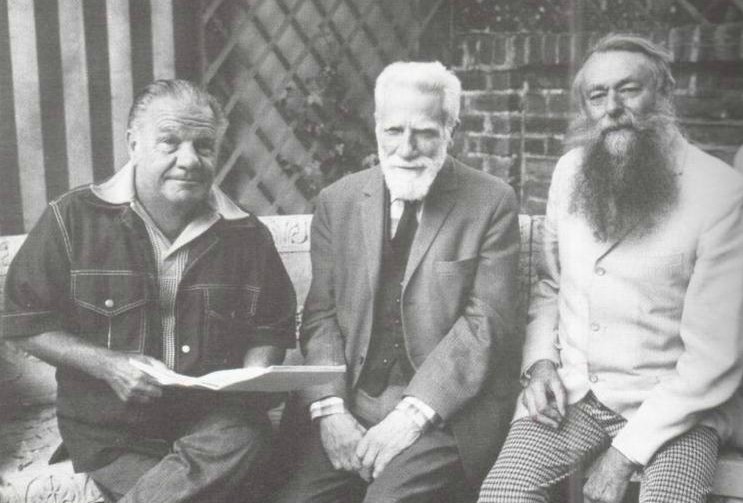 Lawrence Durrell (left) and Theodore Stephanides (centre)
Lawrence Durrell (left) and Theodore Stephanides (centre)
Theodore Stephanides, a true polymath, was a close friend of the Durrells; he is heavily featured in the Corfu trilogy, and appears in Henry Miller’s The Colossus of Maroussi. Yet, he is not widely known to Greek readers. Could you tell a few things about him and his works?
Luckily the outstanding expert on Stephanides is Vera Konidari, one of my collaborators on “Islands of the Mind”. She is working on a biography, and has just translated into Greek one of his own volumes of poetry, The Golden Face. A few years ago we published Stephanides’ memoirs of his years in Corfu, together with some of his later poetry (Autumn Gleanings) and put a plaque on the building where he had his consulting rooms and where Gerald Durrell visited him. His daughter Alexia was a childhood friend of Gerald here in Corfu; sadly she died last year, shortly after her husband, Spyros Mercouris. She gave me the original typescript of her father’s monograph on freshwater biology from the 1930s which is still quoted in the scientific literature. The only person to have a crater on the moon and a microbe named after him!
Theotokis, on the other hand, is one of the patriarchs of Modern Greek literature, but he remains virtually unknown outside of Greece. After all, works of his have appeared in English only quite recently. In your opinion, is this predominantly a matter of bad promotion and lack of funding?
In Corfu, children are still introduced to his Corfiot Tales Κορφιάτικες ιστορίες) which I think is a matter of local pride, and justly so. It is also available in English translation, as are his novels Slaves in their Chains and The Life and Death of Hangman Thomas. Slaves and another novel, Money and Honour were both made into films but are very difficult to obtain. Only one English-language translator, Mark Davies, has worked on Theotokis’s books, although there are translations in French and German. But I’m sorry to say that promotion (and the funding that it needs) is lacking right across the board in Greek literature. Certain writers, like Kazantzakis and Cavafy, are well-known internationally, but there are so many Greek writers who need to reach a wider readership through translation, and the support this needs is almost entirely absent from public funding in Greece. Greek is a “small language” compared with English, Spanish and Chinese. There are so many Greek writers of immense importance whose work would, if translated, focus special attention on Greek culture and society. But inexplicably, as I understand it, the austerity programme signalled the curtailment of the budget for translation, which in my opinion was a counter-productive step. What we are doing here in Corfu through our international meetings is to open up worldwide attention to the strengths and special qualities of Greek culture, especially through its writers.
Right: Spyros Plaskovitis (1917-2000) Right: Painting of Konstantin Theotokis (1872-1923) by Andreas Vranas
What is your own presentation at the symposium about?
I’m going to discuss Lawrence Durrell’s idea of what he called “The Heraldic Universe” – the way a writer needs to isolate him- or herself in order to control the writing environment. But I will be discussing this in the wider context, because (and I say this with pride as a semi-Corfiot!) Lawrence Durrell’s entire life-work was conceived here in Corfu. There’s a notebook to prove it: he foresaw the books that would become The Alexandria Quartet and The Avignon Quintet just as his younger brother owed his entire vision of his crusade to save endangered species to his formative years here under the eye of Theodore Stephanides.
I’m very excited that I’ll be introducing Lawrence Durrell’s mindset by means of a novella The Magnetic island which he wrote here in Corfu in 1939, with three stunning drawings by his wife Nancy (and dedicated to Theodore Stephanides). Until now, it has never been published, but the Durrell Library of Corfu is publishing it in a limited edition, with a bilingual translation into Greek by Vera Konidari, as part of “Islands of the Mind”.
What other plans do you have in the pipeline?
Next year we will be hosting a symposium on the theme “BORDERS AND BORDERLANDS” with participation by Maria Todorova (author of Imagining the Balkans), Kapka Kassabova (author of Border: a journey to the edge of Europe) and Diarmaid Ferriter, an Irish professor of history and an expert on the Irish border which is very topical in the light of “Brexit” and will remain so. We all live on borders or boundaries of some kind, and, at least mentally, inhabit borderlands, and we will be exploring both physical and metaphysical frontiers.
*Interview by Nefeli Mosaidi (Intro photo: Gerald Durrell and Lawrence Durrell at the Jersey Zoo, 1960)
Read also via Greek News Agenda: Richard Pine on Greek-Irish Encounters; Elective Affinities: Greece and Ireland; Henry Miller: On friendship, light and a paradise lost in Greece; Meet “The Durrells” in Idyllic Corfu!; Interview with Sally Woodward Gentle, Executive Producer of the series “The Durrells”

